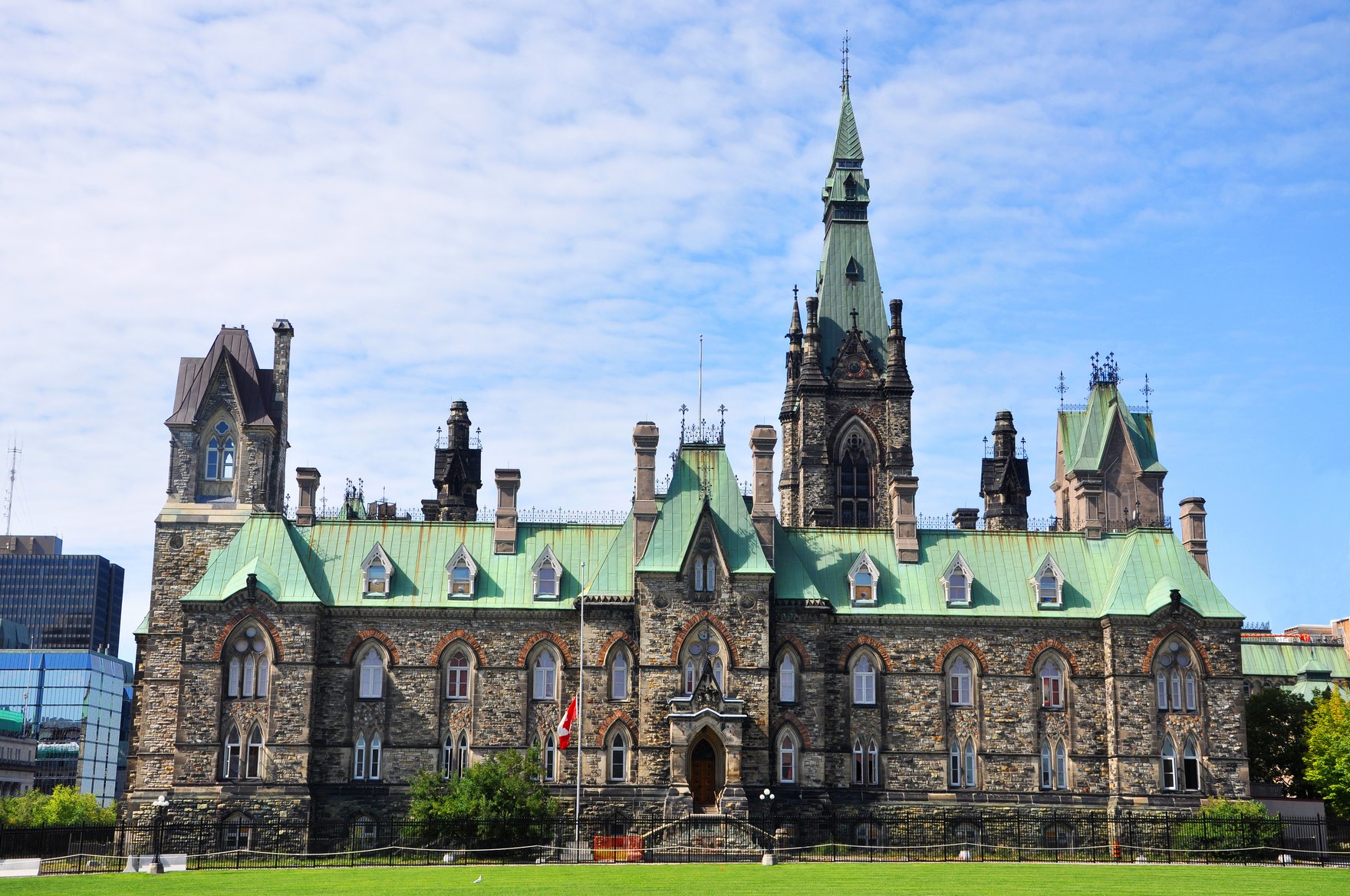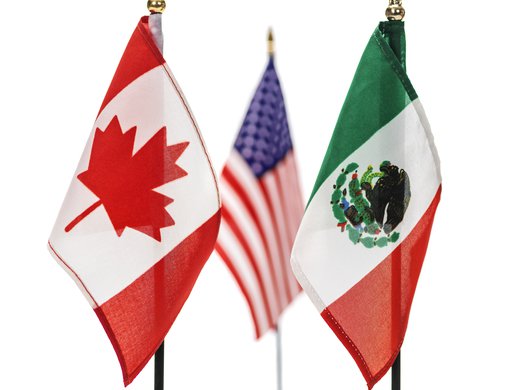On February 26, 2020, Robert Fay, director of global economy at CIGI, addressed the Standing Committee on International Trade regarding Bill C-4 and commitments made in the Canada-United States-Mexico Agreement. A number of new provisions related to data and intellectual property could inhibit Canada’s ability to innovate and develop domestic policies. The following is a lightly edited version of his remarks.
Good evening and thank you, Madame Chair and committee members, for the opportunity to present the views of the Centre for International Governance Innovation (CIGI) on Bill C-4.
By way of introduction, the Centre for International Governance Innovation (or CIGI), is an independent, non-partisan global governance-focused think tank based in Waterloo. We conduct policy-relevant research exploring global economic, security, politics and international law governance, with a focus on digital economy issues.
Given this background, my comments will focus on Bill C-4 specifically as it relates to data and intellectual property.
Canada has focused substantial resources and effort on new trade deals to reinforce the rules of the game for international trade.
And rightly so.
Trade is at the heart of our prosperity and new trade agreements are necessary to open up new markets and preserve old ones.
And revised rules are necessary as economies change and to minimize trade frictions.
We fully understand that trade-offs were necessary in the negotiations of CUSMA [the Canada-United States-Mexico Agreement] and that hard choices had to be made.
And we believe that ratification of this agreement will remove trade uncertainty that has dampened economic growth, so my remarks are not designed to hold up ratification.
Rather, my objective tonight is to highlight how commitments made in CUSMA related to data and intellectual property — IP — may inhibit Canada’s ability both to innovate and to develop our own domestic policies, and offer suggestions on a way forward.
In particular, CUSMA fails to consider the implications of how the nature of trade is changing, moving from scale and cost efficiencies to:
- first, intellectual property creation and extraction;
- second, the rise of (big) data as an economic and social asset; and
- third, the resulting imperative of asset protection.
What Canada agrees to in these areas has very wide-ranging repercussions for Canada in many forward-looking areas, including our ability to harness data in new technologies such as artificial intelligence (AI), as well as fundamental domestic policies related to privacy, security, IP, investment, competition and innovation.
Yes, the list is long and touches upon all aspects of our economy and, indeed, our daily lives.
Yet, we are dealing with these issues largely through a trade lens via a trade agreement that is dominated by US interests.
Trade is at the heart of our prosperity and new trade agreements are necessary to open up new markets and preserve old ones.
I would also note that the recent mandate letters charge the Ministers for ISED [Innovation, Science and Development], Heritage and Justice with the main task of coordinating new digital and data rights, which recognizes that there are substantial societal issues related to the use and monetization of personal data.
Indeed, data is an extremely valuable resource.
Experimental estimates from Statistics Canada have placed the value of Canadian data at almost two-thirds the value of our oil assets — or about CDN$217 billion. And while large, the value likely pales relative to other countries’. While not strictly comparable, the market cap of the US-based Facebook, Apple, Amazon, Netflix and Google is around US$4 trillion. This high valuation results from their monopoly positions and huge data stores.
These companies are further cementing their market positions each and every minute with their continued acquisition of all varieties of data through user engagement with their platforms and fierce protection of their assets by a combination of
- de facto rule setting in the absence of national regulations:
- trade deals that enshrine open data flows;
- strong intellectual property protection of their data and AI assets;
- takeovers of innovative firms through their vast reserves of cash;
- the acquisition of top talent; and
- the powerful information asymmetries that they gain with their data and technologies that drive out competition.
Bottom line: their data are their intellectual property.
And their interests are behind the digital chapter in CUSMA, which enshrines open data flows that favour these platforms.
Three concrete examples of such commitments that favour them include:
- first, the treatment of data localization in CUSMA (Article 19.12). It is short and not so sweet: “No Party shall require a covered person to use or locate computing facilities in that Party’s territory as a condition for conducting business in that territory.” When data is seen only through a commercial lens, the logic of more openness makes sense. But this is problematic for non-economic dimensions of data. For example, if the smart city partnership in Toronto with Sidewalk Labs, a subsidiary of Alphabet, proceeds, Canadians may well desire that the detailed data that will result about the city and the daily lives of its citizens remain in Canada and not be transferred to the United States, but Canada may be limited in its ability to do so.
- Second, under CUSMA, localization is permitted if organizations collect, hold or process information when these activities are undertaken for or on behalf of a government. However, if data deemed critical for national security reasons were held by a private organization, then CUSMA would technically require a government to allow these data to be held and processed in the other two member states’ territories. As a result, these data could become accessible to the other member-state governments (for example, through the USA PATRIOT Act in the United States).
- Third, CUSMA uses the “safe harbour” provision to liberate digital platforms from responsibility for the content they carry. On the one hand, free speech advocates see this as desirable. On the other, some see the “weaponization” of platforms like Facebook, Twitter and YouTube during recent votes such as the 2016 US presidential election as indications of the unwillingness and/or inability of digital platforms or governments to regulate content with important social and political consequences. This is a trade issue because the platforms’ business model is supported via massive cross-border data flows.
In summary, it is not clear how much policy flexibility CUSMA will ultimately allow the federal and provincial governments in adopting new laws and regulations to achieve objectives like to protect people’s privacy, prevent algorithmic bias, protect critical infrastructure, ensure national security or promote domestic innovation — areas that are essential to create trust in the data-driven economy.
Let me now conclude with three recommendations on a way forward.
- First, trade negotiators need to be more fully briefed on the wide-ranging implications of the data-driven economy and the implications arising both from existing digital measures in CUSMA and those that could arise in the e-commerce negotiations that are about to begin at the WTO [World Trade Organization]. We need to be mindful of vested interests that are pervasive in the digital realm and that regional trade agreements are an entry point to manage policy space for areas that go well beyond digital trade.
- Second, we need new international rules of the game for trade, foreign direct investment and intellectual property. Widespread concerns have, for some time, been raised about the fracturing of the global economy into walled-off and possibly warring data realms, and Canada could push to have a full-fledged negotiation round to tackle this issues. More generally, Canada could also push for the creation of a new global organization to set international governance for the data-driven economy. Drawing on the experience of the Financial Stability Board (FSB) created after the financial crisis of 2008–2009, a proposal is to create a Digital Stability Board. Such an organization would develop standards, regulations and policies across the many realms that digital platforms touch; advise on best practices, and consider regulatory and policy actions needed to address vulnerabilities in a timely manner; and ensure that this work feeds into other international organizations such as the WTO.
- Finally, we should use the six-year review built into CUSMA to rectify some of these issues that I have outlined.
Thank you for your time and attention; I look forward to answering any questions you may have.



